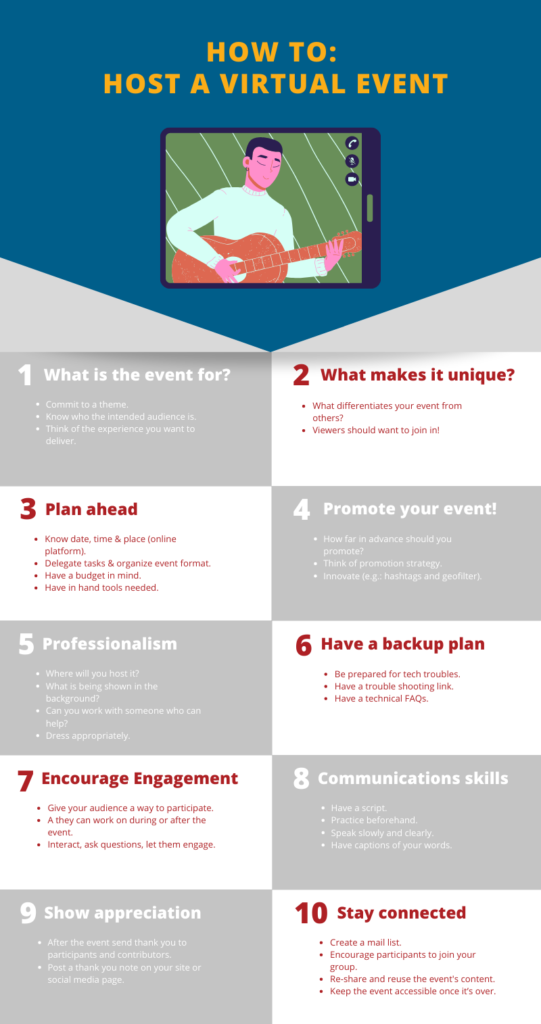Marketing Your Event
When marketing your event, it is important to understand your own target market.
- Who is your audience; is the event open to all SFU students?
- What are all the communication channels for potential guests?
Brainstorm all of the possible channels and try to use as many channels as possible in order to reach a wider audience.
Online Strategies
SFSS Bi-Weekly Newsletter
The SFSS sends out a bi-weekly newsletter to all students in their membership on Fridays. Requests to be featured within the newsletter can be submitted through this link with your event details and a marketing graphic.
Social Media
Utilizing your group’s social media pages provides a great opportunity to spread awareness about your event or group’s presence.
Good opportunities for social media promotion include:
- Setting up an event page on Facebook or Instagram
- Inviting students to the event page
- Asking your executives and members to share on their personal accounts
- Hosting social media giveaways to increase your reach
Tip: prepare your marketing material in advance rather than creating while posting. Pre-scheduling posts and creating a content posting calendar can help with the effectiveness of your marketing.
SFSS Event Calendar
You can request for your upcoming event to be featured in the SFSS online events calendar
https://sfss.ca/calendar/.
In-Person Promotion
Tabling
Booking a table and sitting there pitching to students presents a great opportunity for ticket sales and visibility.
- Possible locations on SFU Burnaby Campus include Convocation mall, inside or outside of the Student Union Building, and inside West Mall Centre.
- In preparation for your tabling, it is good to come prepared with the following materials:
- Club Banner
- Event posters, handouts
- Laptop for in-person sign-up/registration
- Cashbox & change if you are collecting ticket sales
- Swag/candy for to incentivize people to chat with you
- Props
- Tips: Know your pitch! Make sure all members who are pitching with you know all the necessary event facts.
Selling Event Tickets
When selling virtual tickets for the event, it is necessary to set up a secure method for people to purchase tickets through systems.
- Possible event ticketing platforms include: EventBrite, Bounce
- Keep in mind that there are service fees and credit card processing fees that you need to take into account.
- Connect your ticket sale system to your event website.
- Promote ticket sales for your event through social media, email, posters, and table/booth.
- Have a system in place to be able to accept cash payment, as many students may prefer to pay this way so they don’t have to pay for service fees.
- Ensure there is a safe place to keep the cash.
- Set up a float and schedule for when people can buy tickets in person.
- You can set up separate early bird ticket prices or day-of ticket prices, but make sure you account for these differences in your budget and set a cap on the number available.
- If you allow people to register online and pay in person, ensure that you set up a way to collect payment prior to the event. If you leave it to the day of the event, plan for the possibility of the person not showing up and not paying. It is highly recommended that you do not leave payment collection until the day of.
Selling Strategies
Ensure you have a maximum number of attendees set prior to opening ticket sales.
- Confirm the capacity limit with the venue.
- Consult with your event caterer your expected number of attendees.
- Calculate your break even point for ticket sales.
Pricing Strategies
Using pricing strategies at the beginning of your ticket sales can help increase the number of total tickets sold, and tickets sold with the special promotion.
- Early bird: special purchase price offered to those who purchase at the start when sales open.
- Bring a friend: buy two tickets at a discounted price or certain percentage off


